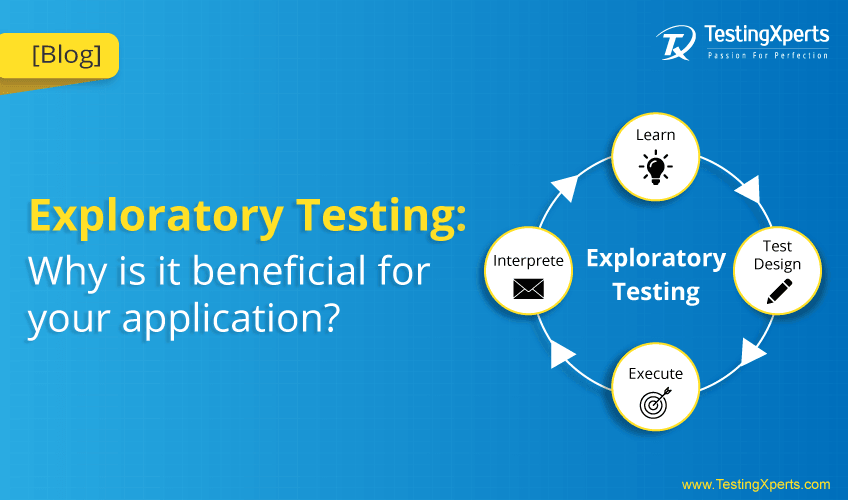Recommended Blogs
Exploratory Testing: A Detailed Guide
December 16, 2021
Exploratory Testing: Why is it beneficial for your App?

Contents
Agility has become an indispensable element for the success of any software product. Fast and effective testing feedback is crucial for the successful launch of any new application. Undetected bugs can cost business enormously in terms of brand value and reputation. In order to ensure your application is tested thoroughly and adequately, its important to perform exploratory testing to ensure all possible user flows are covered by way of testing.
Exploratory testing goes beyond the traditional testing concepts; it is a self-managed and self-structured process. Exploratory testing is not a technique but an approach to exploring software without following any pre-documented steps.
Eradicating the surface defects that cannot be covered by standard testing techniques, exploratory testing services brings out creativity and intuitive side of the testers to discover more defects. The most significant feature of this testing is its real-time nature that helps testers deal with the defined deadlines of the Agile projects.
Exploratory testing is beneficial in all cases where testing scenarios cannot be determined in advance like:
• If you want to explore the scope & variations of a defect that is found.
• If scripted tests are not identifying all errors.
• If you have to deliver quick feedback in terms of product quality in a lesser duration.
• If the product is in the early development stage and the system is not stable.
• If the requirements for the project are ambiguous and it is difficult to determine test cases to be run.
Though exploratory testing has various benefits, it is still not suitable for every scenario, and it comes with its own challenges in execution. Let’s discuss the challenges associated with exploratory testing.
Understanding the product: How well the user understands the application and how to perform testing within limited time
Testing approach: A proper strategy needs to be defined before performing exploratory testing, and there should be some goals set on how to test the application
Tester roles and skills: This testing involves less documentation and more testing. While performing exploratory testing experienced testers are required to have both domain and testing knowledge
Available time: Testers need to perform exploratory testing with good quality of product usually in a small amount of time.
Functionality of the application: Tester needs to understand the end to end application flow while performing exploratory testing, and also needs to focus on the main area of the application
1. No Research Required: Exploratory testing requires no preparation, tests are designed and executed at the same time.
2. Quick Feedback: As different tasks are executed concurrently, exploratory testing saves time & facilitates quick feedback to developers for product enhancement.
3. Improved Utilization of Tester Talent: Exploratory testing allows QA teams to discover & explore the different aspects of an app. Testers can validate their skills & experience by recognizing opportunities for improvements in the software.
Tx Exploratory Testing Capabilities
TestingXperts’ extensive exploratory testing services experience is specifically designed to provide you with continuous testing practices that can speed up your development process. Leverage the experience of our experts and accelerate your development process. Contact us now to know more
Discover more